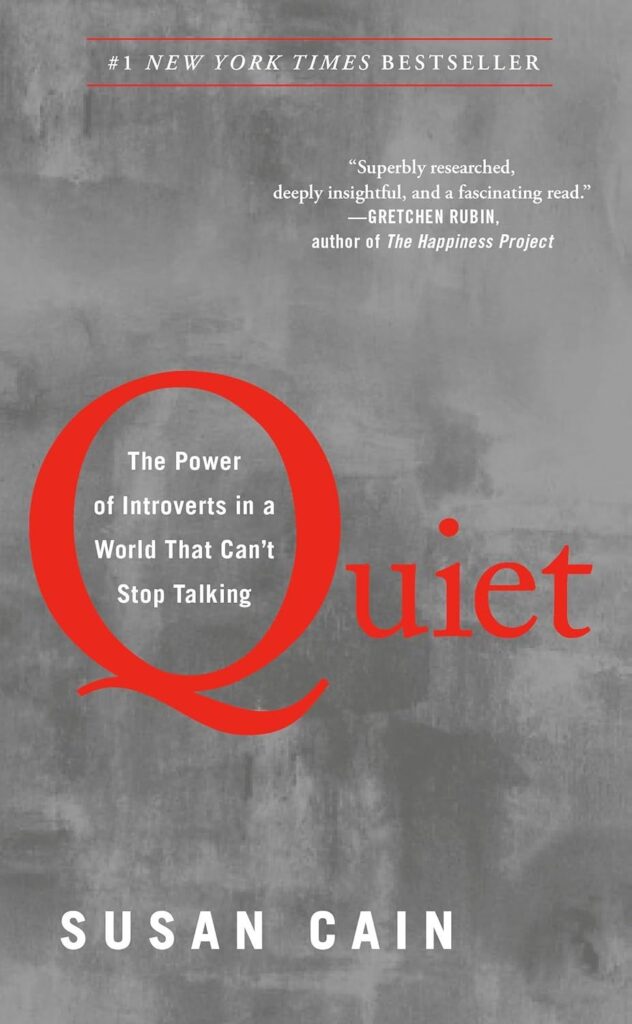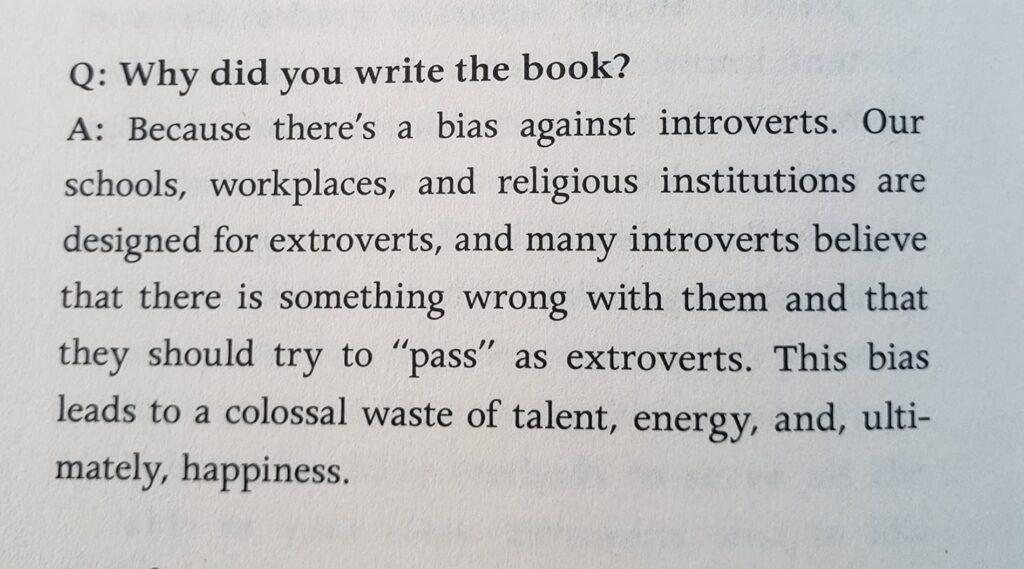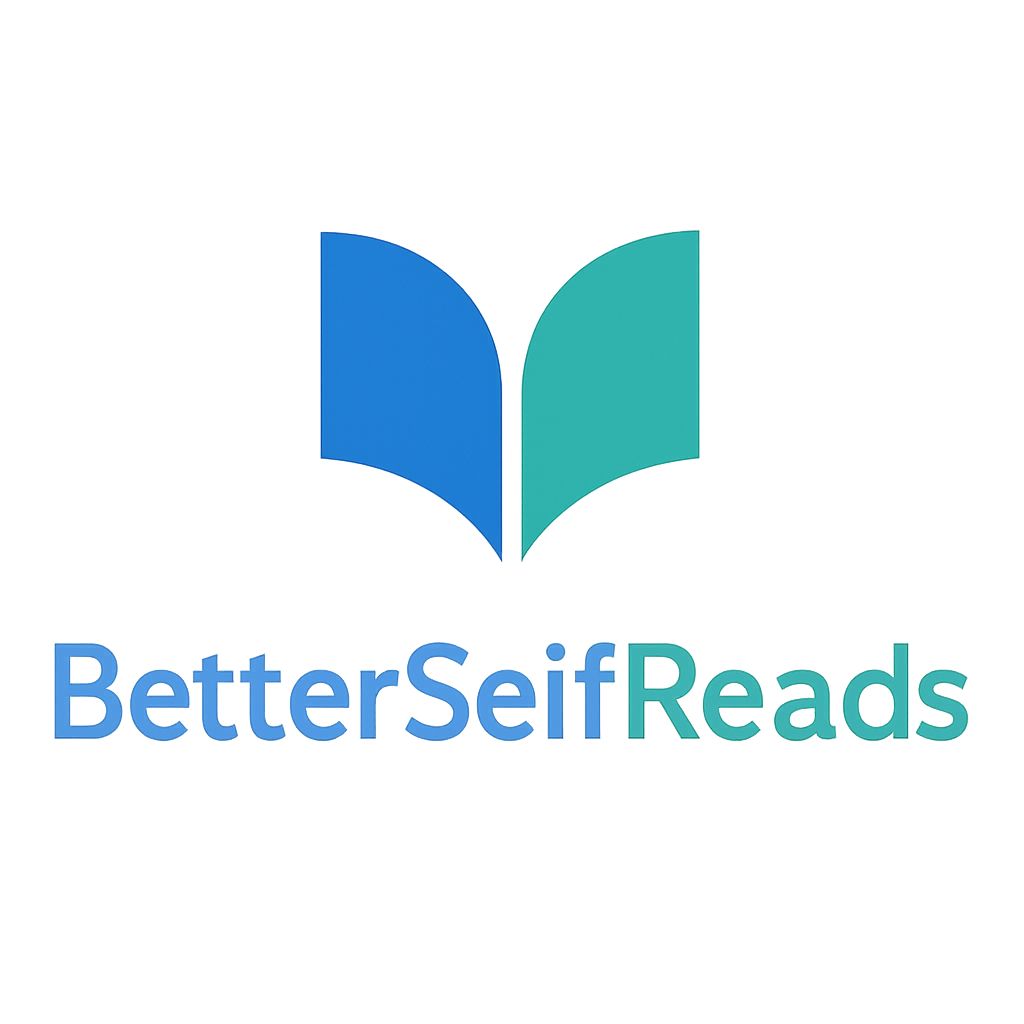
Have you ever felt like the world is simply too loud, too fast, and too demanding of your attention? Many people do, especially those who identify as introverts. If you’ve ever been told that you’re “too quiet,” “too shy,” or “not outgoing enough,” then Susan Cain’s groundbreaking book Quiet: The Power of Introverts in a World That Can’t Stop Talking will feel like a gentle hand on your shoulder, reminding you that there is nothing wrong with you.
In fact, Cain argues that introverts hold extraordinary strengths that society often overlooks. This summary will not only walk you through the key ideas of the book but also help you reflect on how to embrace introversion as a unique source of power in a culture that constantly celebrates extroversion.
Why This Book Matters

For decades, society has favored extroverted qualities networking, group work, charisma, and speaking confidently in public. From the classroom where children are urged to “participate more” to workplaces that promote the most outspoken employees, the message is clear: success seems tied to extroversion.
But Quiet: The Power of Introverts in a World That Can’t Stop Talking turns this assumption upside down. Cain reveals that introverts are not just different they are deeply valuable in ways the world desperately needs: as careful listeners, thoughtful leaders, and creators of innovation born in solitude.
The Extrovert Ideal – and Its Consequences
One of the most eye-opening parts of the book is Cain’s exploration of the “Extrovert Ideal.” We live in a culture that prizes sociability, charm, and boldness. But what happens when introverts, who make up about one-third to half of the population, are constantly pressured to live against their natural rhythm?
The consequences are real. Many introverts feel drained, anxious, or even inadequate because they cannot meet the standards of nonstop social energy. Cain argues that this bias doesn’t just harm introverts it harms society as a whole by silencing some of its most thoughtful voices.
Read also: Best Confidence Building Books for Introverts: 8 Unlocking Quiet Strength
The Biology of Introversion – It’s Not Just Personality
One of the most fascinating aspects of Quiet: The Power of Introverts in a World That Can’t Stop Talking is Cain’s dive into neuroscience and psychology. Introversion is not simply a matter of preference it’s biological.
Introverts’ nervous systems respond more strongly to stimulation. That means loud environments, constant chatter, or high-energy social events can feel overwhelming. Extroverts, on the other hand, crave stimulation and feel energized in those same settings.
This isn’t about one type being better than the other. It’s about balance. Cain encourages introverts to stop trying to “fix” themselves and instead design lives that honor their biological needs.

Strengths That Society Often Overlooks
Cain paints a vivid picture of introverts’ hidden talents, many of which flourish away from the spotlight:
Deep Concentration – Introverts can immerse themselves in a task for hours, producing high-quality and innovative work.
Empathy and Listening – Their ability to listen deeply makes them powerful communicators and trustworthy friends.
Creativity Through Solitude – From writers to inventors, solitude has often been the birthplace of groundbreaking ideas.
Thoughtful Leadership – Introverts often make measured, considerate decisions rather than impulsive ones.
History is full of examples Einstein, Rosa Parks, and J.K. Rowling who illustrate how introverted qualities can transform the world.
Quiet Leadership – Redefining What It Means to Lead
When people think of leaders, they often imagine extroverts commanding a room with energy. But Cain shows how introverts can lead just as effectively, often with greater impact.
Introverted leaders tend to empower others rather than overshadow them. They create space for collaboration and allow team members to shine. Bill Gates and Warren Buffett are strong examples: reserved, reflective leaders whose quiet styles have shaped industries.
Cain makes a powerful point leadership is not about who talks the most, but about who listens, strategizes, and inspires trust.
Relationships: Introverts and Extroverts Together
Another valuable dimension of the book is how it explores relationships. Introverts and extroverts often attract each other, but differences in energy and communication can create misunderstandings.
Cain suggests that harmony comes when both sides respect and value each other’s needs. Introverts may need downtime after social events, while extroverts crave connection. Instead of trying to change one another, both partners can learn to appreciate the balance their differences bring.
For introverts, this chapter is a relief it validates the need for personal space while affirming that they can still form deep, loving bonds.
Quiet in the Classroom – Rethinking Education
Cain shines a spotlight on schools, where extroversion is often rewarded. Children who speak up quickly in class are praised, while those who prefer to think before answering may be overlooked. Group projects, noisy classrooms, and constant social engagement can leave introverted students struggling to find their place.
But Cain argues that these children are not less capable. In fact, their strengths creativity, focus, and independent thinking are exactly what education should nurture. She calls for teachers to create environments that respect both introverts and extroverts, giving every child a chance to thrive.

Quiet in the Workplace – A Call for Change
In modern workplaces, open-plan offices and brainstorming sessions are the norm. While these setups may boost collaboration for extroverts, they often drain introverts. Noise, interruptions, and constant group work can stifle productivity.
Cain recommends that workplaces rethink their approach by offering flexible environments quiet zones for focused work, remote work opportunities, and valuing written contributions as much as verbal ones. By doing so, companies can unlock the full potential of introverted employees, who often produce their best work in calm, focused conditions.
Quiet in Real Life – The Power of Self-Acceptance
Perhaps the most touching part of Quiet: The Power of Introverts in a World That Can’t Stop Talking is the way it helps introverts accept themselves. Many readers describe a sense of relief when they realize they don’t have to “fake extroversion” to be valuable.
Cain’s message is empowering: the world doesn’t need everyone to be louder, faster, or more outgoing. It needs balance, and introverts bring depth, sensitivity, and creativity that cannot be replaced.
About the Author: Susan Cain

Susan Cain is an American writer, lecturer, and the voice behind the global conversation about the power of introverts. A graduate of Princeton University and Harvard Law School, Cain initially worked as a corporate lawyer before discovering her true passion writing and advocating for the quiet strengths of introverts.
Her TED Talk, “The Power of Introverts,” has been viewed by millions worldwide, sparking a movement that changed the way schools, workplaces, and communities think about introversion. Cain’s approachable storytelling, research-backed insights, and empathy have made her one of the leading voices in modern psychology and personal development.
Through her work, she continues to remind us that silence is not emptiness, and that in a world obsessed with noise, introverts carry a wisdom that is often overlooked but deeply needed.
Key Takeaways
1. Society is biased toward extroversion, but introverts hold equally valuable strengths.
2. Introversion is biological it’s about how your brain responds to stimulation.
3. Solitude, deep focus, and creativity are introverts’ superpowers.
4. Quiet leadership can be just as powerful as extroverted leadership.
5. True progress comes when society values both introverts and extroverts equally.
Ready to Embrace Your Quiet Power?
If Quiet: The Power of Introverts in a World That Can’t Stop Talking sounds like the guide you’ve been waiting for, don’t miss it!
Frequently Asked Questions
1. Who should read Quiet: The Power of Introverts in a World That Can’t Stop Talking?
This book is perfect for introverts who want to understand themselves better and learn how to thrive in a world that often feels overwhelming. It’s also valuable for extroverts who want to appreciate the introverts in their lives, as well as teachers, managers, and leaders seeking to build balanced environments.
2. What is the main message of the book?
The central message of Susan Cain’s work is that introverts are not “less than” extroverts. Instead, they bring unique strengths like deep thinking, creativity, and listening that society urgently needs. The book calls for balance, where both introverts and extroverts are equally valued.
3. How does Susan Cain define introversion in the book?
Cain explains that introversion is not about shyness. It’s about how people respond to stimulation. Introverts feel energized in calm, quiet environments, while extroverts thrive on excitement and social interaction.
4. Can introverts be successful leaders?
Absolutely. Cain highlights many examples of introverted leaders, such as Rosa Parks, Bill Gates, and Warren Buffett. Their leadership style is rooted in thoughtfulness, humility, and the ability to empower others rather than dominate them.
5. How can the ideas in Quiet: The Power of Introverts in a World That Can’t Stop Talking help in daily life?
The book encourages introverts to stop apologizing for their nature and instead design lives that honor their strengths. Whether it’s choosing work environments that suit them, setting boundaries in relationships, or embracing solitude for creativity, the lessons apply directly to everyday living.
You may also like: How The Awakened Introvert by Arnie Kozak Helps You Embrace Quiet Power
Final Thoughts
Quiet: The Power of Introverts in a World That Can’t Stop Talking is more than a book it’s a cultural shift. It’s an invitation to reimagine success, leadership, and relationships through the lens of balance rather than bias.
If you’re an introvert, reading this book feels like coming home. It reassures you that your quiet strength is not a flaw but a gift. And if you’re an extrovert, it helps you see the silent brilliance of those around you.
In a world that never seems to stop talking, Cain reminds us that sometimes the most powerful voices are the quietest ones.
